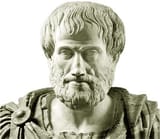Anonymous
8/28/2025, 10:08:37 AM
No.24676581
>>24676592
>>24676646
>>24676660
>>24676813
>>24676842
>>24677133
>>24677159
>>24677173
>>24677236
>>24677392
>>24677407
>>24677481
Is philosophy retarded or am I?
horse.jpg
md5: 121c5c06... 🔍

I believe any concept worth its salt can be explained in gradual levels of complexity. Starting with analogies a child can understand, right up to discourse meant for experts in the field. With each step in between, a topic reveals its complexity and demands more thought.
It seems like most philosophical concepts explained at the most accessible levels, are either entirely intuitive, trivial, or nonsense. Meanwhile many important philosophical works seem to be written almost exclusively at the very top level of complexity, every other sentence being densely crafted in linguistic riddles and esoteric allusions.
Where are all the middle steps for philosophy? Is anyone here able to articulate a single genuinely interesting notion they learned from a philosopher in language I can understand? 2-3 sentences, one step up from your average normie youtube essay?
Please convince me that my suspicions around philosophy are only rooted in ignorance.
It seems like most philosophical concepts explained at the most accessible levels, are either entirely intuitive, trivial, or nonsense. Meanwhile many important philosophical works seem to be written almost exclusively at the very top level of complexity, every other sentence being densely crafted in linguistic riddles and esoteric allusions.
Where are all the middle steps for philosophy? Is anyone here able to articulate a single genuinely interesting notion they learned from a philosopher in language I can understand? 2-3 sentences, one step up from your average normie youtube essay?
Please convince me that my suspicions around philosophy are only rooted in ignorance.



